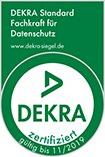Higher Administrative Court of North Rhine-Westphalia, Case No. 19 A 2379/18, December 10, 2020
Naturalization of foreigners into the German state is governed by the Nationality Act. This act sets certain requirements for foreigners, including, among other things, the demonstration of sufficient German language skills. This is considered met by obtaining the German Certificate (B1 level of the Common European Framework of Reference for Languages) in both oral and written forms.
Update: In August 2021, there was a change in nationality law, removing the requirement for “both oral and written forms.” Due to the revision of the nationality law in 2024, the case discussed here would likely be decided differently today.
In this case, a naturalization applicant obtained the certificate at B1 level orally, but only at A2 level in writing, resulting in the denial of naturalization, which was confirmed by the administrative court upon appeal. Consequently, the plaintiff appealed to the Higher Administrative Court of North Rhine-Westphalia (OVG NRW), which dismissed the appeal for the same reasons.
Introduction and Case Facts
The plaintiff, a man born in Syria, first entered Germany in 1990 but was deported in 1995. In 2003, he returned with his German wife and two children, receiving a temporary residence permit that was later converted into a permanent settlement permit. Due to health impairments, the plaintiff was receiving an incapacity pension. In 2013, he applied for naturalization, which was rejected by the defendant on the grounds that the plaintiff exhibited Islamist tendencies and had insufficient language skills.
Rejection of Naturalization by the Defendant
In 2015, the defendant rejected the plaintiff’s naturalization application. This decision was based on the plaintiff’s alleged affiliation with the politically Salafist scene and his role as a founding member of an Islamic association pursuing extremist goals. Additionally, the plaintiff could not demonstrate the necessary language skills required for naturalization under § 10 of the Nationality Act (StAG).
Legal Dispute and Lawsuit
The plaintiff then filed a lawsuit arguing that due to health reasons, he was unable to meet the language requirements. He claimed that the exclusion criteria under § 11 StAG due to anti-constitutional activities were incorrect and the allegations unfounded. The administrative court dismissed the lawsuit in the first instance because the plaintiff could not prove the required language skills.
Plaintiff’s Appeal and New Language Test
In his appeal, the plaintiff submitted a new language test showing B1 level in the “Listening/Reading” and “Speaking” categories, but only A2 level in “Writing.” He argued that his health impairments prevented him from attending a language course. However, the defendant maintained its rejection since the plaintiff still did not meet the B1 level requirement in writing.
Decision of the Higher Administrative Court
The Higher Administrative Court of North Rhine-Westphalia (OVG NRW) upheld the administrative court’s decision and dismissed the plaintiff’s appeal. It ruled that the plaintiff had not demonstrated the required German language skills, particularly in writing. The claim that health issues prevented him from acquiring the necessary language skills was also rejected, as the provided medical certificates did not sufficiently substantiate this.
Conclusion and Legal Consequences
The plaintiff was not entitled to naturalization under § 10 StAG as he could not fully demonstrate the required language skills and his health impairments were not sufficiently documented to justify an exception. Furthermore, he could not disprove the allegations of extremist tendencies, which constituted an additional impediment.
Important Note: This content has been created to the best of our knowledge and understanding. Due to the complexity and constant changes in the subject matter, we exclude liability and guarantees.
If you need legal advice, please contact us without obligation at 0221 – 80187670 or send us an email at info@mth-partner.de.
Lawyers in Cologne advise and represent clients nationwide in immigration law.




